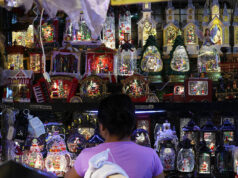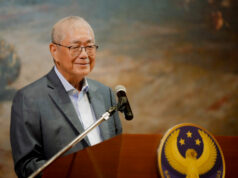‘Hot money’ outflows continue amid uncertainty

FOREIGN PORTFOLIO investments fled the country’s financial markets for a fourth straight month in June, as the uncertainty over the pandemic continued to weigh on investor sentiment.
“Hot money” — called as such due to the ease by which these funds enter and exit an economy — yielded a net outflow of $235.38 million in June, data from the Bangko Sentral ng Pilipinas (BSP) on Thursday showed.
The net outflow in June is significantly higher than the $36.03 million a year ago but 76% lower than the $1.006 billion outflow in May. This was also the smallest net outflow since the $320 million that exited in December 2019.
In the first six months of 2020, hot money yielded a net outflow of $3.3 billion, much wider than the $721-million net outflow logged a year ago.
The BSP forecasts a net inflow of $2.4 billion in hot money this year. It revised its earlier $8.2- billion net inflow estimate, which was given in November 2019, to reflect the impact of the ongoing crisis
The coronavirus disease 2019 (COVID-19) pandemic’s impact on the global economy affected foreign portfolio investments in the first half of 2020, the central bank said. Other factors that contributed to the bigger hot money outflows include the geopolitical tensions between US and Iran, trade talks between Washington and Beijing, and the renegotiation of the water concessionaires’ contracts.
In June, hot money inflows hit $1.019 billion, lower by 27.78% than the $1.411 billion logged a year ago and more than double the $486.26 million in May.
On the other hand, outflows declined 13.37% to $1.254 billion last month from the $1.447 billion in June 2019 and by 15.95% from the $1.492 billion in the previous month.
“The United Kingdom, Singapore, the US, Norway and the Bahamas were the top five investor countries for the month, with combined share to total at 71.7%,” the BSP said in a statement.
The bulk (92.3%) of the investments went into the stock market, specifically in shares of holding firms, property companies, banks, telecommunication firms, and retailers. The remaining 7.7% of the funds were invested in government securities.
The continued exit of foreign funds is no surprise given the “fragile sentiment” caused by the crisis and its impact on overall economic activity, according to ING Bank N.V. Manila Senior Economist Nicholas Antonio T. Mapa.
“We may expect this theme to continue as the country continues to grapple with the virus and the economy remains on low gear due to social distancing and fears of the virus,” he said in an e-mail.
While foreign portfolio investments could continue to yield net outflow in the near term, slight improvements may be seen depending on the progress of a coronavirus vaccine, Robert Dan J. Roces, chief economist at Security Bank Corp. said.
“For the longer term, flows could see a partial reversal but this is largely hinged on the promise of developments of a vaccine and policy directions,” Mr. Roces said in an e-mail. — Luz Wendy T. Noble



